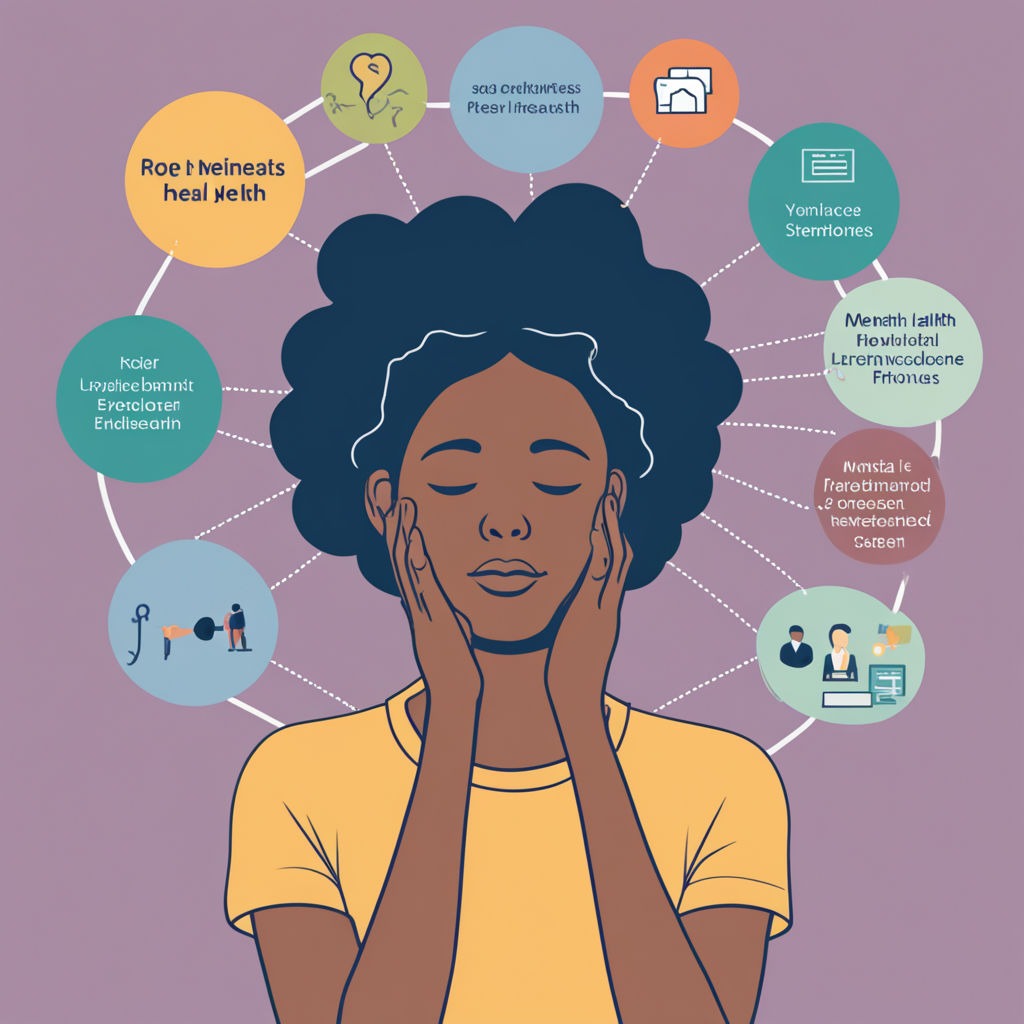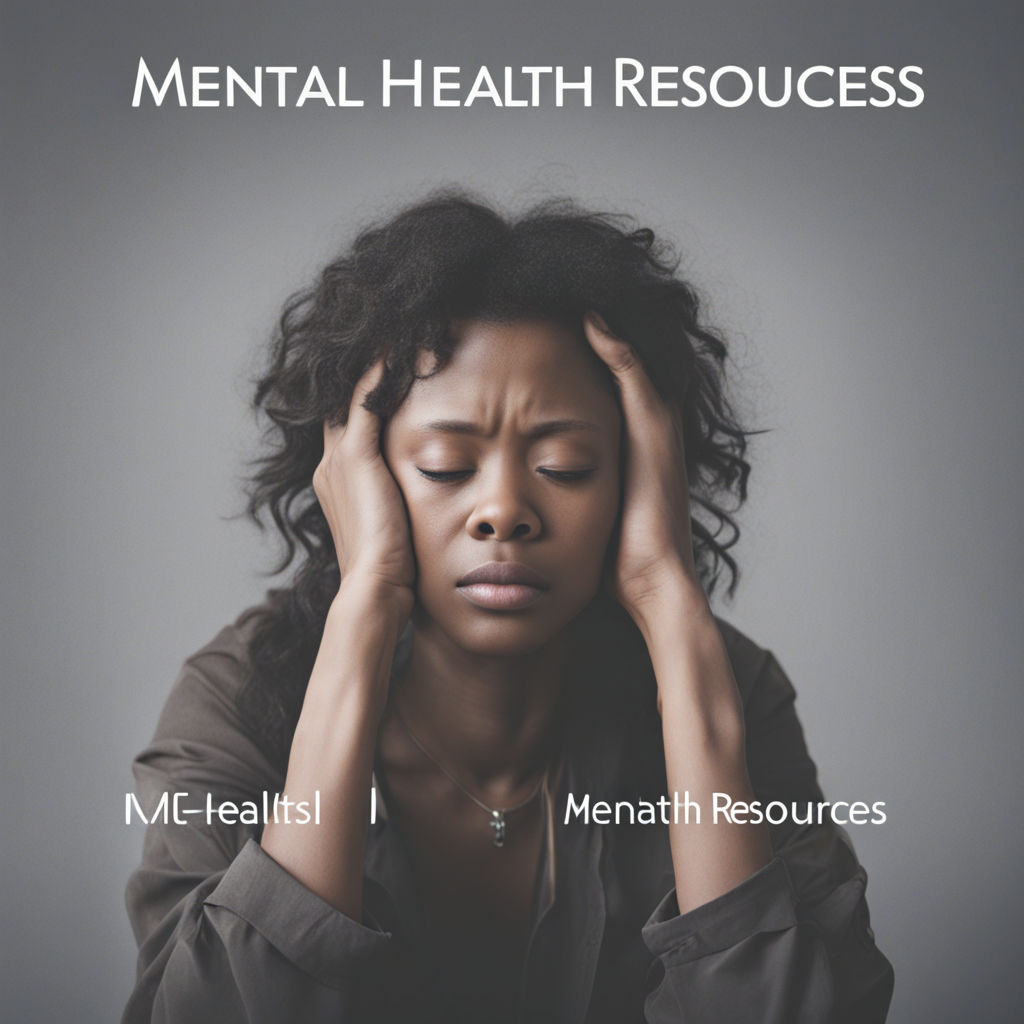
Introduction
In today’s fast-paced world, where we’re all juggling a million things at once, it’s easy to let mental health slip to the bottom of the priority list. But here’s the thing—mental health is just as important as physical health. Think of it as the glue that holds everything else together. Without it, even the most well-oiled machine can fall apart.
Now, this is where support systems come into play. Whether it’s a friend who always knows when to send that “just checking in” text or a professional who can guide you through the tough times, having a solid support system can make all the difference. It’s like having a safety net when life feels like a high-wire act.
In this guide, we’re going to explore everything from therapy options and community resources to the best mental health apps on the market. We’ll also talk about how to build your own support network and what to do when you’re facing a mental health crisis. Ready to dive in?
Let’s get started!
And if you’re curious about specific resources, here are some places you can visit for more information:
Understanding Mental Health Support
What is Mental Health Support?
Mental health support is like having a trusted guide on a hike through the wilderness of life. It’s the assistance, resources, and encouragement we receive to help navigate the ups and downs of our mental and emotional well-being. This support can come in many forms, whether it’s a chat with a friend, a session with a therapist, or joining a community group that shares your experiences. Essentially, mental health support is anything that helps you feel seen, heard, and understood when you’re struggling.
Types of Mental Health Support
Support for your mental health can be divided into three main categories:
- Professional Support: This includes therapists, counselors, psychiatrists, and other mental health professionals. They’re like the experts who know the terrain well and can provide the tools and strategies you need to manage your mental health effectively. For example, a therapist might use cognitive-behavioral techniques to help you reframe negative thoughts, while a psychiatrist can offer medication management for conditions like anxiety or depression.
- Community Support: This type of support comes from the groups and networks we belong to, such as support groups, non-profit organizations, or even online forums. Community support is all about connecting with others who “get it”—people who have walked a similar path and can offer empathy, advice, and encouragement. Organizations like Mental Health America and NAMI provide excellent community resources.
- Personal Support: Personal support is closer to home—it’s the family, friends, and loved ones who know you best. They might not have professional training, but their love and care can be incredibly powerful. This type of support is often the most immediate and comforting, providing that emotional safety net when you need it most.
The Impact of Effective Support on Mental Health
Effective support can be a game-changer when it comes to mental health. Studies have shown that people who have strong support systems are more likely to manage stress better, recover faster from mental health issues, and enjoy overall better well-being. Whether it’s through professional help, community resources, or the love of those closest to us, having the right support can make the journey through life’s challenges much smoother. So, don’t hesitate to reach out—your mental health is worth it!
Professional Support: Therapy and Counseling
Exploring Therapy Options
When it comes to professional mental health support, therapy is often the first thing that comes to mind. And for good reason—therapy can be incredibly effective in helping you work through various mental health challenges. There are several types of therapy to consider, depending on your needs:
- Cognitive-Behavioral Therapy (CBT): This popular approach focuses on identifying and changing negative thought patterns and behaviors. It’s like mental rewiring, helping you to see things from a different, healthier perspective.
- Psychotherapy: Also known as talk therapy, this is a more general form of therapy where you discuss your thoughts, feelings, and behaviors with a trained professional. It’s great for digging deep into underlying issues that might be affecting your mental health.
- Dialectical Behavior Therapy (DBT): Originally developed to treat borderline personality disorder, DBT is now used for a variety of mental health conditions. It combines CBT with mindfulness techniques to help you manage emotions and reduce self-destructive behaviors.
- Eye Movement Desensitization and Reprocessing (EMDR): EMDR is particularly effective for treating trauma. It involves processing distressing memories through guided eye movements, helping to reduce their emotional impact.
These are just a few of the many therapy options available. The key is to find the one that resonates with you and addresses your specific needs.
How to Find a Therapist or Counselor
Finding the right therapist or counselor can feel a bit like dating—you want to find someone who understands you, listens well, and makes you feel comfortable. Here are a few tips to help you in your search:
- Start with Recommendations: Ask friends, family, or your primary care doctor for recommendations. Personal referrals can often lead you to someone who’s a good fit.
- Use Online Directories: Websites like Psychology Today offer directories where you can filter therapists by location, specialty, and insurance coverage.
- Check with Your Insurance: If you have health insurance, your provider’s website will likely have a list of in-network therapists. This can save you money and ensure that the therapist accepts your insurance.
- Consider a Consultation: Many therapists offer a free initial consultation, either in-person or over the phone. This is a great way to gauge whether you’ll feel comfortable working with them.
The Role of Telehealth in Mental Health Support
Telehealth has revolutionized mental health care, especially in recent years. With telehealth, you can receive therapy and counseling from the comfort of your own home, which can be a game-changer for those with busy schedules or limited access to in-person services.
- Convenience: No more commuting or sitting in a waiting room—telehealth allows you to connect with a therapist via video call, phone, or even text, making it easier to fit therapy into your life.
- Access: For those living in rural areas or places with few mental health resources, telehealth opens up a world of options. You can choose from a broader range of therapists who might not be available locally.
- Comfort: Some people feel more at ease discussing sensitive topics from the familiarity of their own home. This can make therapy feel less intimidating and more accessible.
Platforms like BetterHelp and Talkspace have made telehealth widely available, offering flexible options for those seeking therapy. Whether you prefer face-to-face sessions or virtual support, telehealth ensures that help is always within reach.
Community Resources for Mental Health

Support Groups: Online and In-Person Options
Support groups are like a lifeline, offering a safe space where you can connect with others who understand what you’re going through. Whether you’re dealing with anxiety, depression, or more specific challenges like coping with a suicide in the family, these groups can provide comfort, advice, and a sense of belonging.
- Online Support Groups: For those who prefer the convenience of connecting from home, online support groups are a fantastic option. Websites like 7 Cups and Mental Health America offer forums and chat rooms where members can share their experiences, seek advice, and find solidarity in a supportive online community.
- In-Person Support Groups: If you prefer face-to-face interaction, in-person support groups are available in many communities. These groups are often organized by local mental health centers, hospitals, or non-profit organizations. They provide a chance to build deeper connections and receive real-time support from peers who are navigating similar challenges. The National Alliance on Mental Illness (NAMI) offers a wide range of in-person support groups across the country, including those focused on suicide prevention and treatment for various mental health conditions.
Non-Profit Organizations Offering Mental Health Services
Non-profit organizations are at the heart of many mental health initiatives, offering free or low-cost services to those in need. These organizations work tirelessly to ensure that everyone, regardless of their financial situation, has access to quality mental health care.
- Mental Health America (MHA): MHA is one of the leading non-profits in the mental health space, providing a range of services including screenings, educational resources, and advocacy. They offer specific programs aimed at helping children and families, as well as initiatives focused on suicide prevention and treatment.
- NAMI: NAMI is another powerhouse in the mental health community, offering resources for individuals, families, and children dealing with mental illness. They provide support groups, educational programs, and advocacy efforts to improve mental health care across the country.
- The Trevor Project: Focused on suicide prevention among LGBTQ+ youth, The Trevor Project provides crisis intervention and suicide prevention services through phone, chat, and text. They also offer educational resources and training for schools and organizations.
Accessing Community Mental Health Centers
Community mental health centers are a vital resource for those seeking affordable and accessible mental health care. These centers offer a wide range of services, including therapy, medication management, and crisis intervention.
- Finding a Center: To find a community mental health center near you, you can start by searching online or contacting local health departments. The Substance Abuse and Mental Health Services Administration (SAMHSA) offers a treatment locator that can help you find nearby centers.
- Services Provided: These centers typically offer comprehensive mental health care for all age groups, including children and adolescents. Services may include individual and group therapy, psychiatric evaluations, and specialized treatment for conditions like anxiety, depression, and trauma. Many centers also have programs focused on suicide prevention and offer immediate help for those in crisis.
- Membership and Costs: While many services are available to anyone in the community, some centers may require membership or enrollment in specific programs. However, they often offer sliding scale fees based on income, ensuring that cost is not a barrier to receiving treatment.
Community resources are a critical part of the mental health support system, providing accessible and often free services to those who need them most. Whether you’re looking for a support group, seeking treatment for yourself or a loved one, or finding help for children, these resources are there to help you navigate your mental health journey.
Personal Support Systems
The Importance of Family and Friends in Mental Health
Family and friends are the unsung heroes of our mental health journey. They’re the ones who know us best—our quirks, our strengths, and even our weaknesses. When life throws challenges our way, having a solid support system of loved ones can be the difference between feeling isolated and feeling supported. Family and friends provide emotional stability, offer perspective when things get tough, and sometimes just knowing they’re there can be incredibly reassuring.
Their role isn’t just about being there during a crisis; it’s also about celebrating the good times, helping to create a balanced life, and encouraging us to seek help when needed. Whether it’s a late-night chat with a friend or a comforting hug from a family member, these moments of connection can significantly boost our mental well-being.
Tips for Building a Strong Personal Support Network
Building a strong personal support network doesn’t happen overnight—it’s about nurturing relationships over time. Here are a few tips to help you strengthen your support system:
- Stay Connected: Make an effort to regularly check in with friends and family, even when things are going well. This helps maintain the bond and ensures that when you do need support, it doesn’t feel like you’re reaching out of the blue.
- Communicate Openly: Let your loved ones know what you’re going through. Being open about your mental health can help them understand your needs better and provide more effective support.
- Be There for Others: Support is a two-way street. By being there for your friends and family, you’re also strengthening the foundation of your own support network. Plus, helping others can be incredibly rewarding and good for your own mental health.
- Expand Your Circle: Don’t be afraid to reach out and build new relationships. Whether it’s joining a community group, reconnecting with an old friend, or meeting new people with shared interests, expanding your social circle can provide additional sources of support.
Self-Care Practices as a Form of Self-Support
While having a strong network of family and friends is vital, self-care is equally important. Think of self-care as the foundation that supports everything else in your life. It’s about taking the time to recharge, relax, and do things that make you feel good—physically, emotionally, and mentally.
- Set Boundaries: Protect your mental health by setting boundaries, whether that means saying no to extra responsibilities, limiting time with negative influences, or simply taking a break when you need it.
- Practice Mindfulness: Mindfulness practices like meditation, deep breathing, or even a quiet walk in nature can help you stay grounded and reduce stress. These moments of calm allow you to recharge and face challenges with a clearer mind.
- Engage in Activities You Love: Whether it’s reading, gardening, or hitting the gym, doing things you enjoy is a great way to boost your mood and mental health. These activities serve as reminders that life isn’t just about stress and responsibilities—there’s joy to be found, too.
- Prioritize Sleep and Nutrition: Good mental health is closely linked to physical health. Make sure you’re getting enough sleep, eating well, and staying hydrated. These basic self-care practices can have a big impact on your overall well-being.
By taking care of yourself and maintaining strong connections with loved ones, you’re building a robust personal support system that can help you navigate life’s ups and downs with resilience and grace.
Navigating Mental Health Crises
Recognizing the Signs of a Mental Health Crisis
A mental health crisis can be overwhelming, both for the person experiencing it and for those around them. Recognizing the early signs of a crisis is crucial for getting help before the situation escalates. Some common indicators include:
- Severe Mood Swings: Sudden, extreme changes in mood, such as intense feelings of sadness, anger, or euphoria, that are out of character.
- Withdrawal from Social Activities: Avoiding friends, family, or previously enjoyed activities can be a red flag.
- Changes in Sleep or Eating Patterns: Sleeping too much, too little, or experiencing sudden changes in appetite can signal a crisis.
- Expressions of Hopelessness or Despair: Talking about feeling trapped, hopeless, or expressing thoughts of suicide or self-harm.
- Inability to Function in Daily Life: Struggling to perform routine tasks, such as going to work, school, or maintaining personal hygiene.
If you notice any of these signs in yourself or someone else, it’s important to take them seriously and seek help immediately.
Emergency Resources: Hotlines, Crisis Intervention Services
In the midst of a mental health crisis, knowing where to turn for help can save lives. Here are some emergency resources that provide immediate support:
- Suicide Prevention Lifeline: If you or someone you know is in crisis, the Suicide & Crisis Lifeline is available 24/7 at 988. They provide confidential support for anyone experiencing thoughts of suicide or severe emotional distress.
- Crisis Text Line: For those who prefer texting, the Crisis Text Line offers support via text message. Text HOME to 741741 to connect with a trained crisis counselor.
- Local Crisis Intervention Services: Many communities have crisis intervention teams that can respond to emergencies. These teams often include mental health professionals who can provide on-site support and connect individuals with further resources. You can usually find these services through local mental health centers or emergency rooms.
- Emergency Rooms and Hospitals: If the situation is life-threatening or you’re unsure where to turn, don’t hesitate to go to the nearest emergency room. They are equipped to handle mental health crises and can provide immediate care.
How to Support Someone Experiencing a Mental Health Crisis
Supporting someone in a mental health crisis can be challenging, but your presence and assistance can make a significant difference. Here’s how you can help:
- Stay Calm and Listen: Approach the person with empathy and without judgment. Listen to what they have to say, and validate their feelings without offering immediate solutions. Sometimes, just being there to listen can provide immense comfort.
- Encourage Professional Help: Gently encourage them to seek professional support, whether it’s contacting a hotline, reaching out to a therapist, or going to the emergency room if necessary. Offer to help them make the call or accompany them if they’re willing.
- Remove Immediate Dangers: If the person is expressing thoughts of suicide or self-harm, it’s important to ensure their safety. Remove any objects that could be used for self-harm, and stay with them until help arrives.
- Don’t Promise Secrecy: While it’s important to respect their privacy, do not promise to keep their crisis a secret, especially if they are at risk of harming themselves or others. It’s crucial to involve professionals who can provide the necessary support.
- Take Care of Yourself: Supporting someone in crisis can be emotionally draining. Make sure to take care of your own mental health and seek support if you need it. Remember, you don’t have to do it all on your own—there are resources available to help both you and your loved one navigate the crisis.
By recognizing the signs of a mental health crisis, knowing how to access emergency resources, and providing compassionate support, you can play a vital role in helping someone through one of the toughest times in their life.
